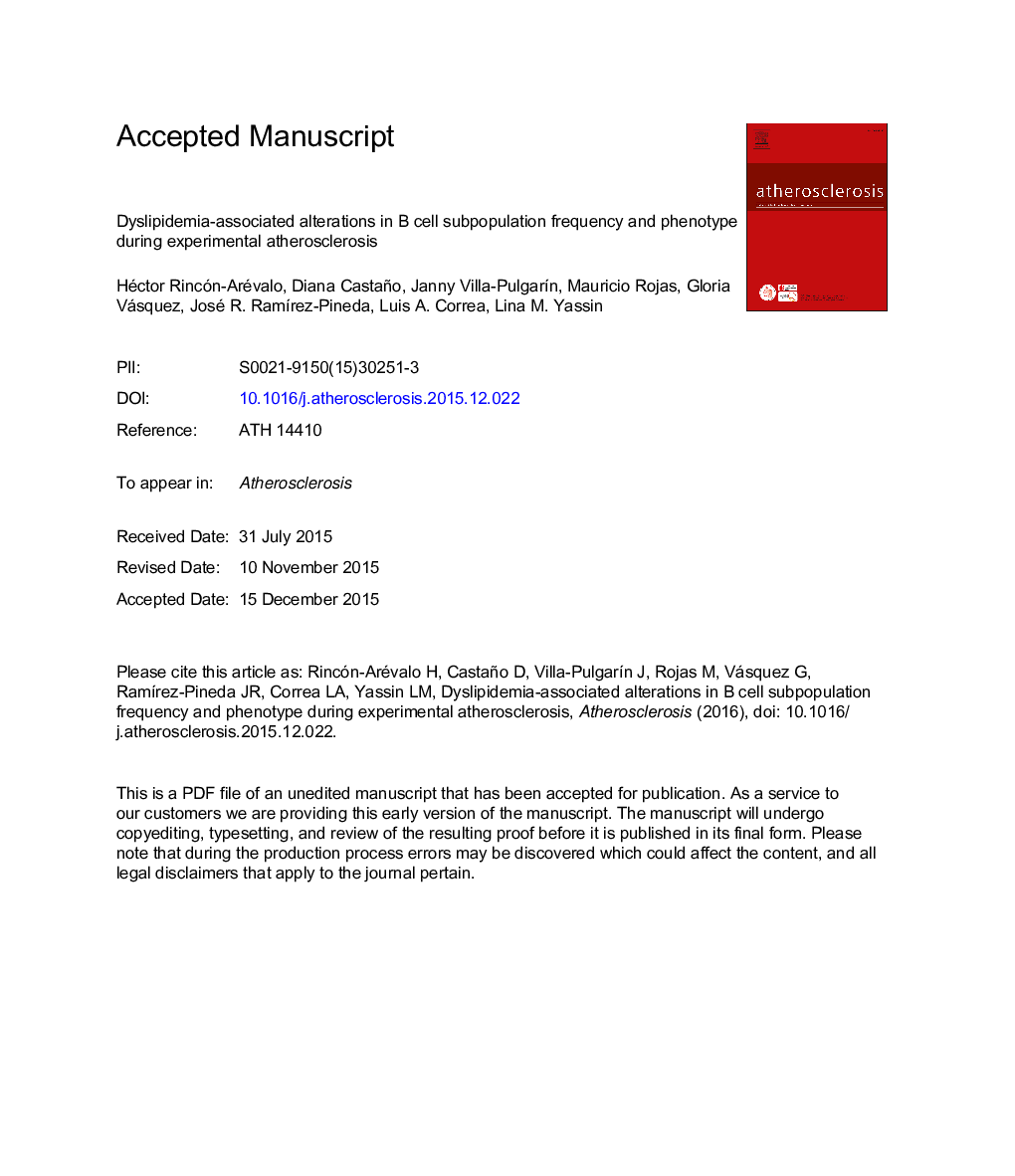| Article ID | Journal | Published Year | Pages | File Type |
|---|---|---|---|---|
| 5943324 | Atherosclerosis | 2016 | 22 Pages |
Abstract
Lymphocytes, the cellular effectors of adaptive immunity, are involved in the chronic inflammatory process known as atherosclerosis. Proatherogenic and atheroprotective properties have been ascribed to B cells. However, information regarding the role of B cells during atherosclerosis is scarce. Both the frequency and the phenotype of B cell subpopulations were studied by flow cytometry in wild type and apolipoprotein-E-deficient (apoEâ/â) mice fed a high-fat (HFD) or control diet. Whereas the proportion of follicular cells was decreased, transitional 1-like cells were increased in mice with advanced atherosclerotic lesions (apoEâ/â HFD). B cells in atherosclerotic mice were more activated, indicated by their higher surface expression of CD80, CD86, CD40 and CD95 and increased serum IgG1 levels. In the aorta, a decreased frequency of B cells was observed in mice with advanced atherosclerosis. Low expression of CD19 was observed on B cells from the spleen, aorta and lymph nodes of apoEâ/â HFD mice. This alteration correlated with serum levels of IgG1 and cholesterol. A reduction in CD19 expression was induced in splenic cells from young apoEâ/â mice cultured with lipemic serum. These results show that mice with advanced atherosclerosis display a variety of alterations in the frequency and phenotype of B lymphocytes, most of which are associated with dyslipidemia.
Related Topics
Health Sciences
Medicine and Dentistry
Cardiology and Cardiovascular Medicine
Authors
Héctor Rincón-Arévalo, Diana Castaño, Janny Villa-PulgarÃn, Mauricio Rojas, Gloria Vásquez, Luis A. Correa, José R. RamÃrez-Pineda, Lina M. Yassin,
